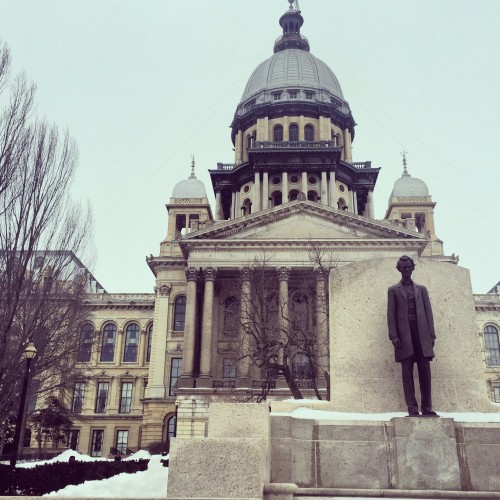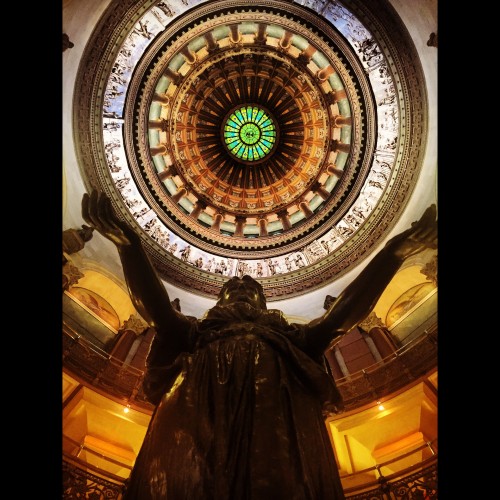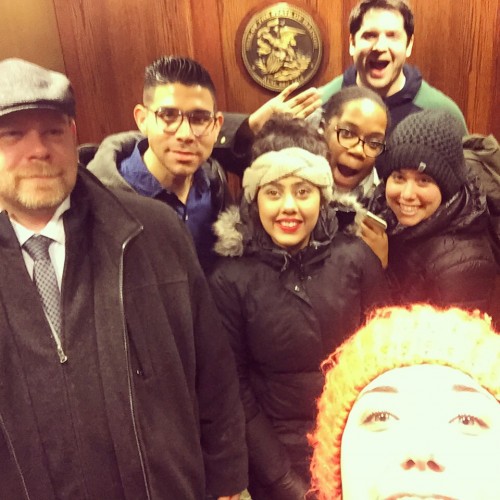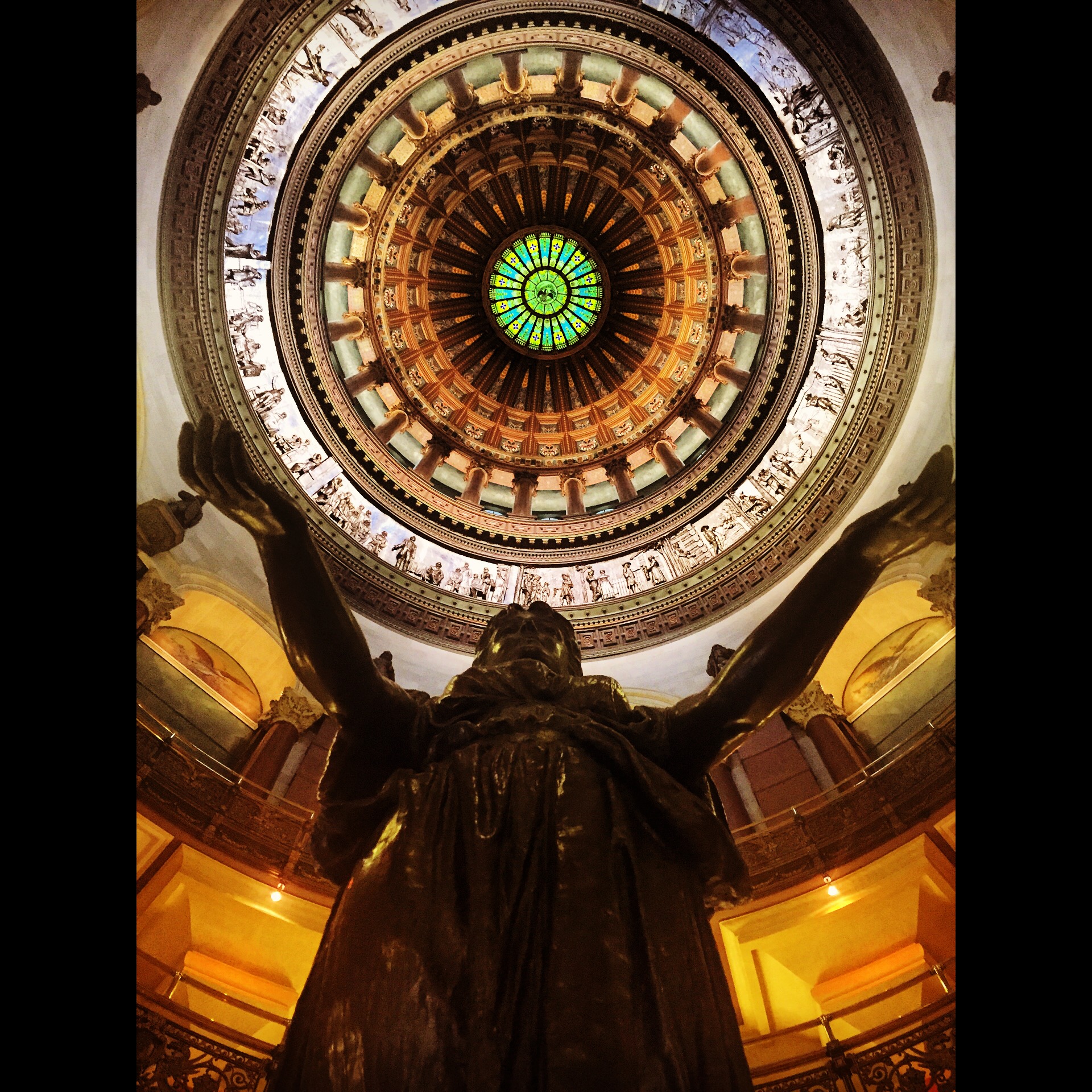
How My Recent Trip to Springfield Opened The Door To A New Side of Journalism
While the Journalism, MA program at Columbia College Chicago puts you into the real world of journalism in the classroom—by assigning deadlines and conducting interviews with sources—it is not exactly the same as what you are going to be doing when you get out into the field. The professors in this program know that, which is why every year they send the journalism graduate students to Springfield, IL to report on the state public affairs first-hand.
At first, my classmates and I didn’t understand what the difference between reporting what bills the Illinois General Assembly had passed or didn’t pass from Chicago, verses reporting them from Springfield? Did we really have to travel three and a half hours and spend three days away from home just to do what we were already doing in the city?
What myself and my cohort came to realize was, yes, reporting from where the news is actually taking place will change your whole story entirely. When we first stepped off the train in Springfield, I immediately noticed the Department of Child and Family Services building—the organization I have been working all semester to get in contact with so I could have something besides a press release to add to my stories. I thought to myself, “how convenient that I am here to cover the proposal of a bill involving DCFS, and their headquarters are right here if I have question.”
As we continued our walk to our hotel, my classmates started to have the same realization. We began to notice most of the departments and organizations that we have spent so much time contacting for sources from our Chicago newsroom were right down the street from the Capitol Building where we would be reporting from the following day.
The following day, we were sent out on our own to cover the committee hearings that related to our beats (I have the Human Services beat, which meant I was going to be hearing the committee hearing from the State House’s Human Services Committee). I was expecting the hearing to be boring and routine, but to my surprise—and to the surprise of my classmates—the experience proved to be worth the trip.
I was able to not only get the immediate details of what was going to happen to the bill I was there to report on, but also get immediate quotes from a lot of people I had been trying to contact while I was in Chicago.
The difference, I learned, is that people working in the Capitol are used to having to answer the press questions following a committee hearing, and were not too inclined to call journalists back that didn’t take the time to come down to the hearing. I was able to make my story on the bill five times better (in my opinion) than I would have been able to do from the comfort of my Chicago newsroom.
Reporting in the field, rather than from the newsroom, also gives you an in-person experience that you cannot beat. You get to feel the emotion of the legislators proposing the bill, as well as those opposing it. You also get to catch their meetings before and after the hearing, which adds not just more information to your reporting, but a better emotional understanding on how your story should be reported.
From my experience in Springfield, I was able to open my eyes to why reporting in the field is something journalists need to make sure they are doing. Anyone can aggregate the news from their laptop; anyone can make phone calls to sources or use press releases to fill their articles with quotes; but few reporters are able to capture the emotion and the behind the scenes aspects that come with reporting in the field.
This is something that Columbia does very well, they put their students into the field and let them go on their own, while also being there to answer any questions they may have along the way.
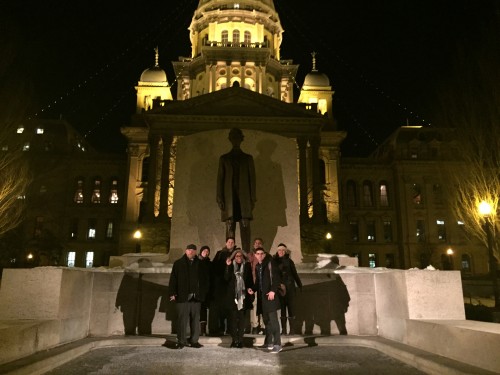
Journalism MA Class of 2016 outside of Illinois State Capitol Building with Professor Curtis Lawrence.
I am reaching the 2/3 mark of this program, and already looking back at my reporting from the start of this program, to the reporting I did in Springfield, I can see a huge difference in my writing, as well as my reporting skills. From my experience through this program, I have become better at asking the important questions, while avoiding asking questions I can easily find the answer to from an online resource.
If you have a passion for the truth, and a knack for telling stories, Columbia College is the place to go to help hone in on those talents and make them better—making you a better journalist. There are many factors that always play into this program, but the one that I find the most important thus far, is Columbia providing you with the experience in the field you need in order to not only become better at reporting, but also to help you when you are out in the real world of new reporting. I am continuously reminded throughout this program that Columbia College has been the best choice I could have made for my career.

